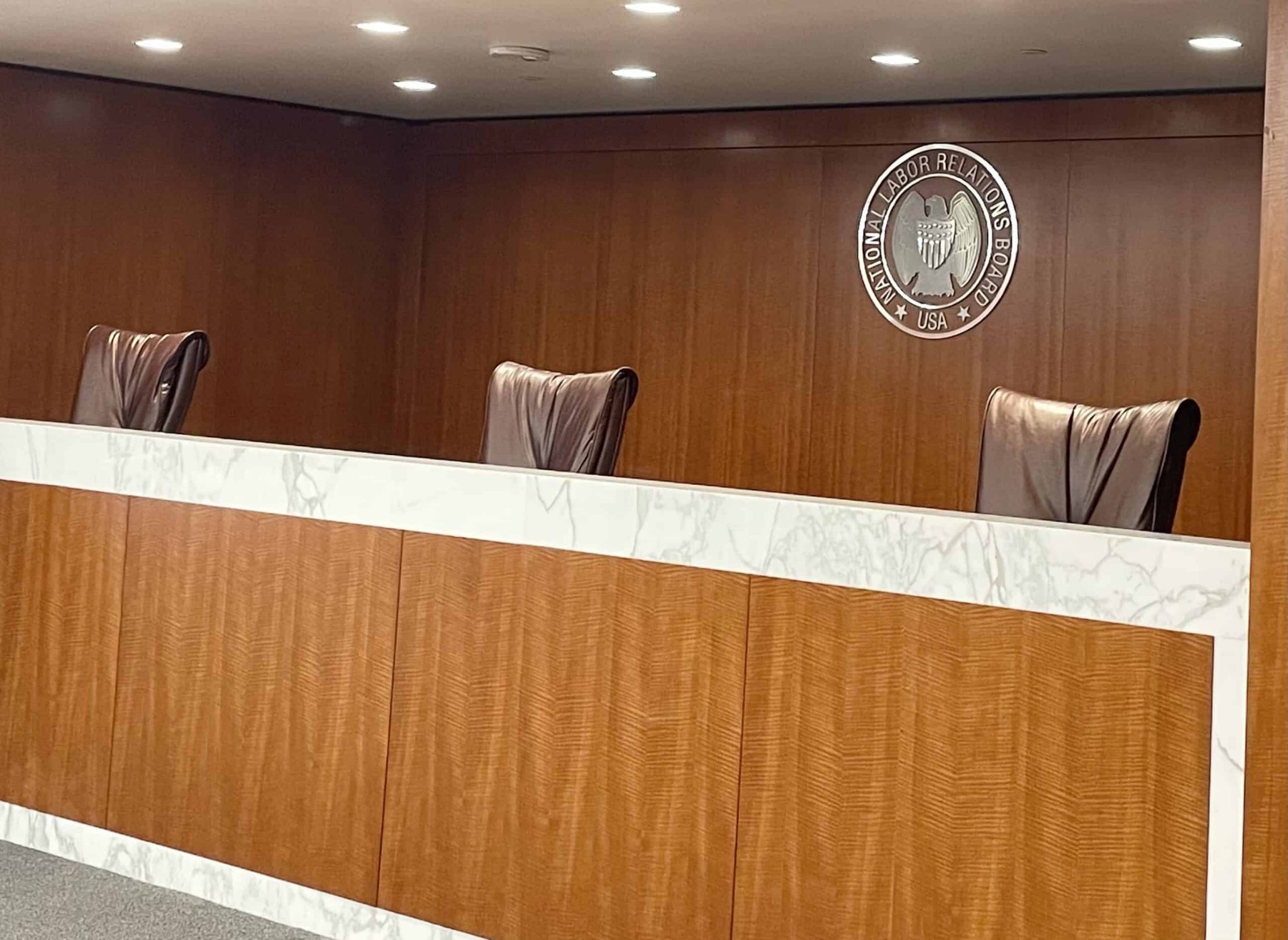Everest Fang is a student at Harvard Law School.
In today’s news and commentary: Second Circuit hears argument on NLRB structure, California voters reject ban on forced prison labor, and Supreme Court declines request to revisit Garmon preemption.
Yesterday, a Second Circuit panel seemed likely to punt on a nursing home operator’s claim that the insulation of NLRB ALJs from removal is unconstitutional. The panel heard arguments in an appeal by Care Realty of a lower court ruling that declined to block an NLRB case against the company pending the outcome of its lawsuit against the agency. In its lawsuit, Care Realty claims that NLRB ALJs should be subject to at-will removal by the president. The case was the first of its kind to be filed, but the NLRB is now facing similar challenges to its in-house enforcement proceedings in about two dozen lawsuits pending around the country, including cases brought by Amazon and SpaceX. The Second Circuit is the first federal appeals court to hear arguments over the ALJ removal issue. Yesterday, Judges Reena Raggi and Maria Araujo Kahn suggested that because Care Realty has the ability to seek the full board’s review of the ALJ’s decision and then appeal the board’s decision to the Second Circuit, the court lacked jurisdiction over the case.
California voters have rejected a ballot measure to prohibit forced prison labor. Proposition 6 would have amended the state’s constitution to ban involuntary servitude for people in prison. The proposition would have allowed people in prison to choose their jobs, with a related proposal that would have created voluntary work programs within the prison system. The state employs nearly 40,000 people in prison who do a variety of essential work, including fighting wildfires, janitorial work, construction and cleaning. Most earn wages of less than $0.75 an hour. Additionally, more than 65% of people imprisoned in California reported being forced to work, according to the ACLU. As of Monday, while votes were still being counted, 53.8% of voters had rejected the measure, while 46.2% backed it. It had no formal opposition. Multiple states – including Colorado, Tennessee, Alabama and Vermont – have voted to rid their constitutions of forced labor exemptions in recent years, and this week they were joined by Nevada.
Yesterday, the Supreme Court turned away a California nurse’s challenge to a state court decision rejecting her unfair firing suit, declining to take another pass at what kinds of labor-related suits plaintiffs may bring in court. In an order list, the Court denied Jane Churchon’s challenge to a January ruling by California’s Third Appellate District dismissing her whistleblower retaliation suit against Sutter Valley Hospitals. Churchon had asked the Supreme Court to revisit its 1959 decision in San Diego Building Trades Council v. Garmon. In Garmon, the Court held that suits over conduct “arguably” covered by the NLRA belong before the NLRB, not the courts. In May, the Third Appellate District upheld a decision applying Garmon to dismiss Churchon’s suit, which accused the hospital of firing her for raising concerns about legal violations and patient safety issues. The court held that Churchon’s conduct was “arguably protected” by the NLRA because they were linked to her working conditions. The California Supreme Court declined to review the Third Appellate District’s decision in May. Churchon filed a charge with the NLRB before bringing her state court suit, but the board dismissed it for lack of evidence.






Daily News & Commentary
Start your day with our roundup of the latest labor developments. See all
January 27
NYC's new delivery-app tipping law takes effect; 31,000 Kaiser Permanente nurses and healthcare workers go on strike; the NJ Appellate Division revives Atlantic City casino workers’ lawsuit challenging the state’s casino smoking exemption.
January 26
Unions mourn Alex Pretti, EEOC concentrates power, courts decide reach of EFAA.
January 25
Uber and Lyft face class actions against “women preference” matching, Virginia home healthcare workers push for a collective bargaining bill, and the NLRB launches a new intake protocol.
January 22
Hyundai’s labor union warns against the introduction of humanoid robots; Oregon and California trades unions take different paths to advocate for union jobs.
January 20
In today’s news and commentary, SEIU advocates for a wealth tax, the DOL gets a budget increase, and the NLRB struggles with its workforce. The SEIU United Healthcare Workers West is advancing a California ballot initiative to impose a one-time 5% tax on personal wealth above $1 billion, aiming to raise funds for the state’s […]
January 19
Department of Education pauses wage garnishment; Valero Energy announces layoffs; Labor Department wins back wages for healthcare workers.